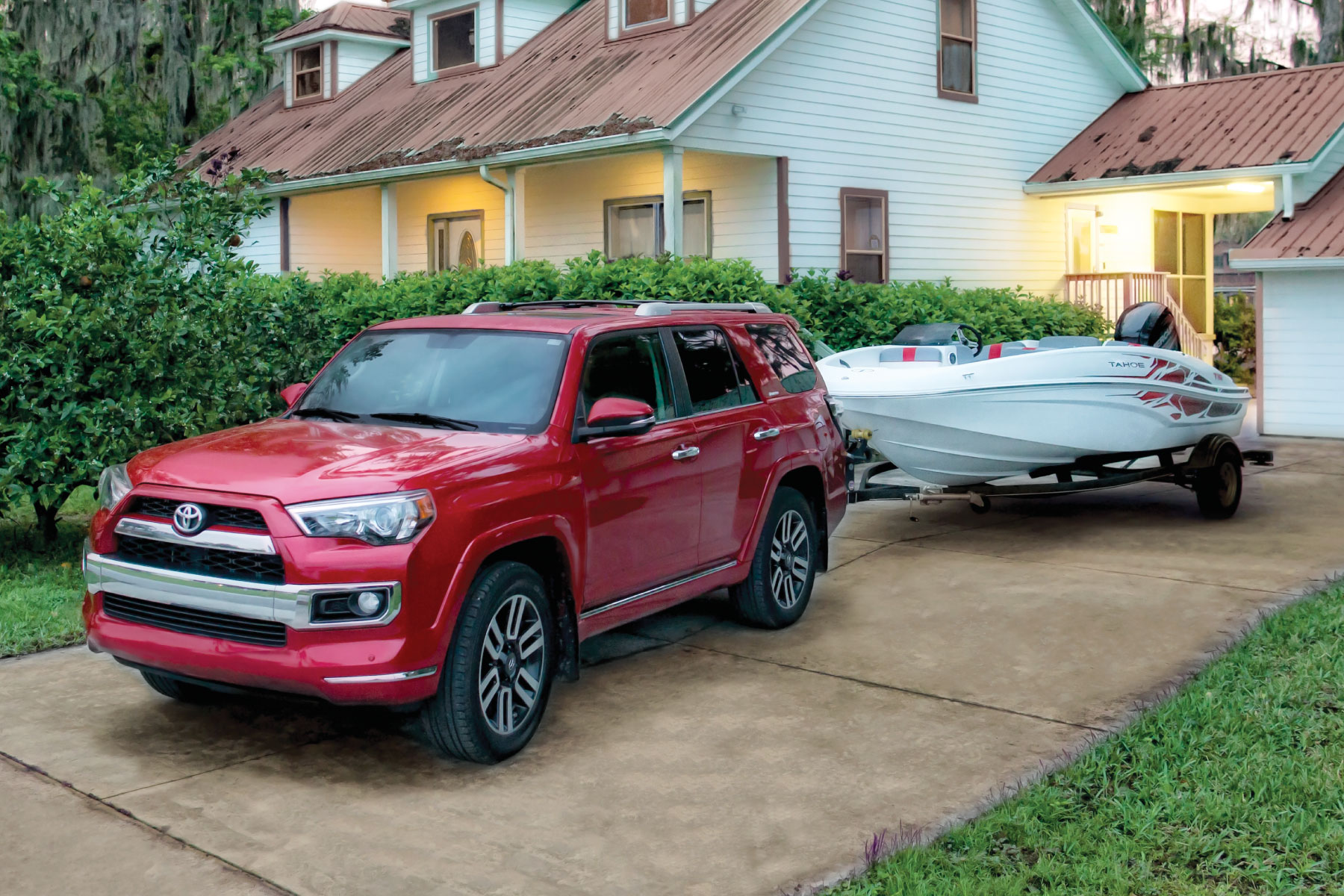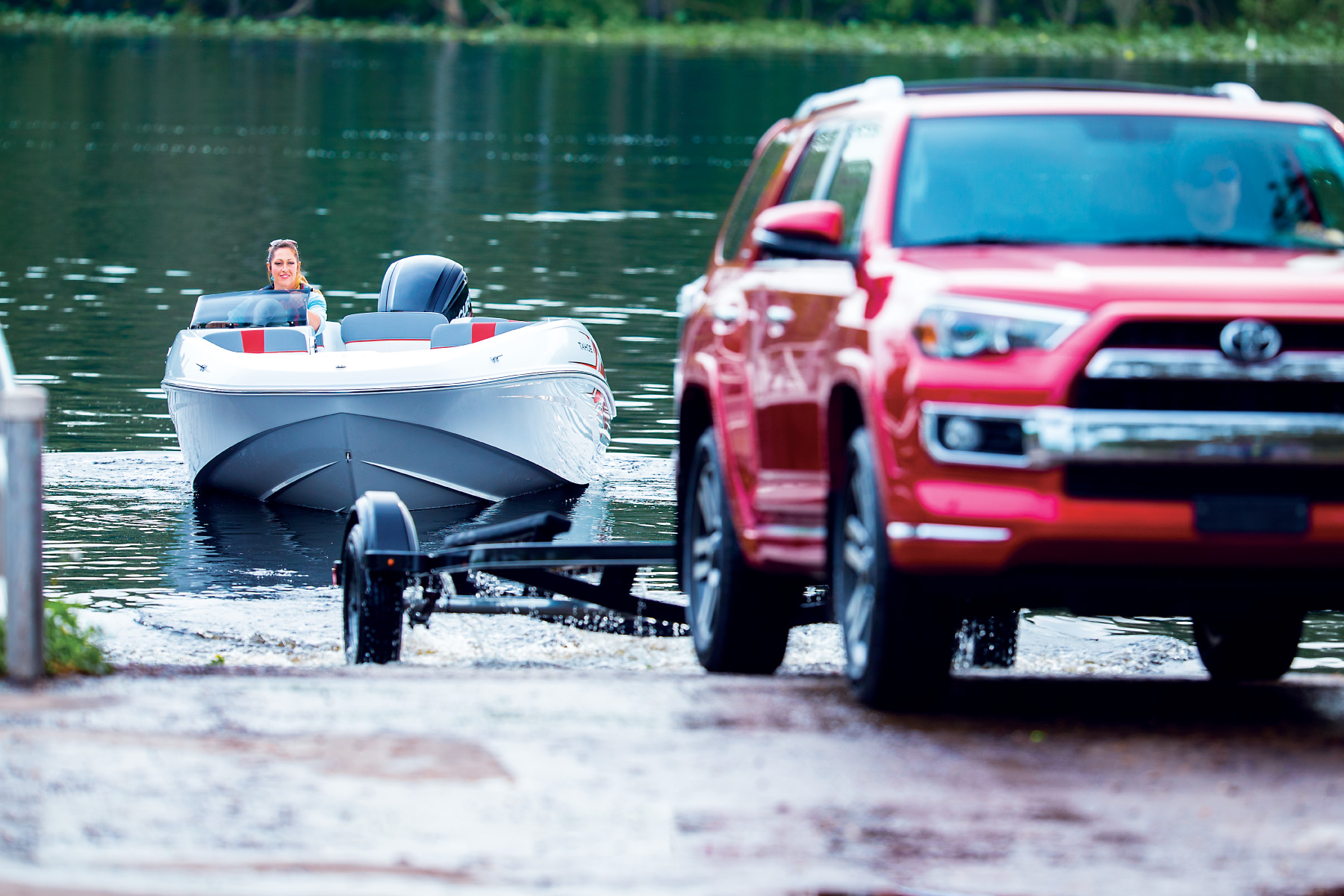Two styles of trailer taillights and side-marker lights are available—conventional, incandescent bulbs and the newer LED lights. The advantage of the former is that replacement bulbs are inexpensive and readily available. LED lights have longer life spans, stay cooler and react to brake-light inputs milliseconds faster. Their downside is, because most are sealed units, if a light goes out, you have to replace the entire unit (not just the bulb cluster). The upside is they have far more illumination power and are safer.
Tip: LED trailer lights used to be far more expensive than conventional lights, but the good news is that LEDs are coming down in price, making them a more logical choice for boat trailers.
Here’s one final tip worth considering. Find answers to everything you need to know about towing at a Bass Pro Shops/Cabela’s Boating Center. The helpful experts share the same passion as you for boating, and you can find service, accessories and anything else you need for your boat. You can find that, too, and have the confidence that it will ride on a custom-matched trailer that is ideal for the model.


